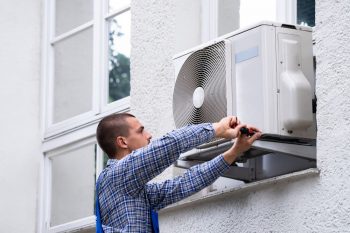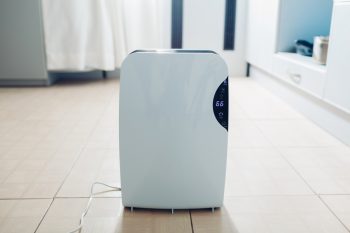
Testing your AC compressor is crucial for maintaining the efficiency and longevity of your air conditioning system. This comprehensive guide will walk you through the process step-by-step, providing you with the knowledge you need to ensure your AC compressor is in top shape.
To test an AC compressor, first, turn off the power to the unit. Then, perform a visual inspection for signs of wear or damage. Check the electrical connections and use a multimeter to measure the resistance between each pair of the compressor terminals. Test for grounded winding by placing one multimeter lead on the compressor casing and the other on each terminal. Use manifold gauges to check the suction and discharge pressures. Monitor the discharge line temperature and record temperatures in the refrigerated space. If any results are out of the normal range, there may be an issue with the compressor.
What is an AC Compressor?
The AC compressor is the heart of your air conditioning system. It’s responsible for compressing the refrigerant and pumping it throughout the system. A malfunctioning compressor can lead to a variety of issues, from reduced cooling efficiency to complete system failure.
Indications That an AC Compressor Needs Testing
Before you begin testing your AC compressor, it’s important to understand the signs that may indicate a problem. These include:
- Unusual noises coming from the compressor
- Fluid leaks around the compressor
- Poor air conditioning performance
- Higher energy bills
- Difficulty starting the AC system
- Abnormal noises or vibrations
If you notice any of these signs, it’s time to test your AC compressor.
Necessary Tools and Equipment
To perform a test on an AC compressor, you’ll need the following tools:
- A multimeter
- An AC compressor clutch holding tool
- A clutch hub puller/installer kit
- An insulation resistance tester
- Thermometers
- Refrigerant and oil moisture and acid test kits
- Leak detection equipment
- A vacuum pump
- A flashlight or headlamp
How to Test an AC Compressor
Here are the steps to test an AC compressor:
- Turn off the Power: Safety first! Ensure the power to the AC unit is off to avoid electrical shocks.
- Visual Inspection: Inspect the compressor for any visible signs of wear, damage, or corrosion.
- Check Electrical Connections: Inspect the wiring that comes from the harness to the compressor. Look for signs of damage or loose connections.
- Use a Multimeter: Set your multimeter to measure resistance (ohms). Measure the resistance between each pair of the three compressor terminals.
- Test for Grounded Winding: Place one multimeter lead on the compressor casing and the other lead on each of the compressor terminals. If the multimeter shows continuity, the windings are shorted to the ground.
- Check the Pressure: Use manifold gauges to measure the suction and discharge pressures of the compressor.
- Check the Discharge Line Temperature: Monitor the temperature of the discharge line to ensure it is within the normal range.
- Record Temperatures in the Refrigerated Space: Keep track of the temperatures in the refrigerated space to ensure they are within the desired range.
Interpreting the Results
After testing the AC compressor, you’ll need to interpret the results:
- If the resistance values are significantly different or if there’s no resistance measured between any of the pairs, the compressor windings may be damaged.
- If the multimeter shows continuity when testing for a grounded winding, the windings are shorted to the ground.
- If the suction and discharge pressures are not within the specified range, there might be a problem with the compressor.
- If the discharge line temperature is too high, it could indicate a problem with the compressor.
In case of any issues, it’s best to contact a professional HVAC technician to diagnose and repair the problem.
Remember, regular maintenance is the key to a long-lasting and efficient air conditioning system. Don’t wait until there’s a problem to test your AC compressor. Regular testing can help catch potential issues early, saving you time and money in the long run.
Frequently Asked Questions
What is the function of a multimeter in testing an AC compressor?
A multimeter is a versatile tool that is used to measure different electrical properties such as resistance (ohms), current (amps), and voltage. In the context of testing an AC compressor, it is used to measure the resistance between the compressor terminals, which can help in identifying if the windings are damaged.
How often should I test my AC compressor?
The frequency of testing your AC compressor can depend on several factors including the age of the unit, usage, and the environment in which it operates. However, a general rule of thumb is to test it once a year, typically before the start of the cooling season.
What should I do if I detect a fluid leak around my AC compressor?
If you detect a fluid leak around your AC compressor, it’s important to address it as soon as possible. This could be a sign of a refrigerant leak, which not only reduces the efficiency of your AC system but is also harmful to the environment. Contact a professional HVAC technician for a thorough inspection and repair.
Can I perform these tests myself, or do I need a professional?
While some basic tests and checks can be performed by a homeowner who is comfortable with DIY tasks, it’s always recommended to have a professional HVAC technician conduct more complex tests. This is especially true if you suspect there’s a problem with your AC compressor. Professionals have the necessary knowledge, experience, and tools to accurately diagnose and repair issues.
What does it mean if the discharge line temperature is too high?
If the discharge line temperature is too high, it could indicate a problem with the compressor. This could be due to a variety of issues, such as a lack of refrigerant, a blockage in the system, or even a faulty compressor. A professional HVAC technician can help determine the exact cause and fix the issue.












